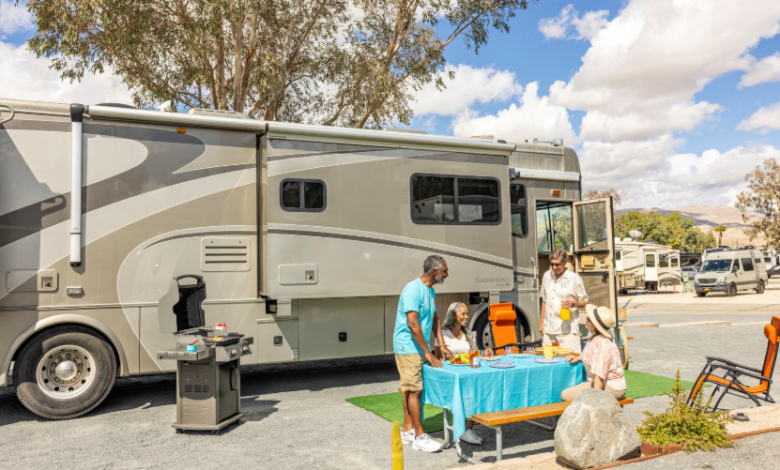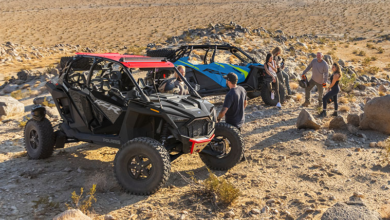What to Expect from an RV Inspection Before Your Next Adventure

If you’re planning your next road trip or outdoor getaway, investing in a reliable RV can make the experience more enjoyable and stress-free. But before you hit the road, whether you’re buying a new or pre-owned RV from a reputable RV Dealer or simply preparing your current RV for the season, an RV inspection is a crucial step that should never be overlooked. Understanding what happens during an RV inspection can help you avoid costly surprises and ensure a safe, smooth journey.
The Importance of an RV Inspection
An RV is more than just a vehicle—it’s your mobile home. It combines transportation with living quarters, which means it has unique complexities that go beyond typical car maintenance. Electrical systems, plumbing, appliances, roofs, slide-outs, and even propane lines all require careful assessment. Getting an RV inspection is about ensuring that all of these components function properly and safely.
Whether you’re buying from a private seller or an RV dealer, inspections give you peace of mind. Most reputable RV dealerships will perform a thorough pre-sale inspection and provide documentation of what was checked or repaired. If you’re not purchasing through a dealer, hiring a certified RV inspector is highly recommended. The best RV rental New York options offer similar pre-trip inspections for your peace of mind.
Exterior Inspection: More Than Just Looks
The inspection begins with the RV’s exterior. Inspectors will examine the roof for signs of leaks, cracks, or soft spots—common issues caused by sun damage or water intrusion. Seals and seams are closely inspected to ensure they’re intact and watertight.
The sidewalls and windows are checked for signs of delamination or water penetration. Tires are evaluated for tread wear, sidewall cracks, and proper inflation. Any storage compartments, awnings, and slide-outs are tested for smooth functionality and proper seals.
The hitch and towing system are also reviewed. Safety chains, brake controllers, and the wiring harness must be in top condition for a safe towing experience.
See also: Some Of the Very Best Milan Travel Attractions
Interior Inspection: Your Mobile Living Space
Inside the RV, the inspector will examine all living systems. This includes the plumbing system—checking for leaks, water pressure, and hot water function. The freshwater, gray water, and black water tanks are tested for proper drainage and valve operation.
The electrical system is another crucial area. All outlets, lights, and appliances are tested using shore power and, if applicable, battery or generator power. Fuses, breakers, and battery health are checked to ensure everything operates safely.
Heating and air conditioning units are tested to verify consistent airflow and temperature control. Gas systems, particularly propane lines and appliances like the stove or furnace, are checked for leaks using special detectors. Safety devices like carbon monoxide and smoke detectors are also tested for functionality.
Chassis and Drivetrain (for Motorized RVs)
For motorhomes, the inspection extends to the engine, transmission, and drivetrain. The inspector will check for oil leaks, coolant levels, transmission fluid condition, and the functionality of belts and hoses. Brake systems are tested, as well as the suspension, steering, and alignment.
If you’re working with an experienced RV dealer, they’ll usually provide a checklist or report that outlines the results of these mechanical inspections. This gives you confidence in the reliability of your vehicle.
Common Issues That Can Be Prevented
Some of the most common problems identified during inspections include roof leaks, dead batteries, tire dry rot, water pump failure, and faulty propane detectors. Catching these issues early can save you thousands of dollars in repair costs and prevent dangerous situations on the road.
That’s why many RV owners schedule routine inspections—often annually—even if they’re not planning to sell or buy. A qualified RV dealer can often offer pre-season and post-season checkups that help maintain the RV’s condition and value over time.
Choosing the Right RV Dealer
If you’re purchasing an RV, working with a certified and trusted RV dealer offers significant advantages. They usually include inspection services as part of the sales process and may provide warranties or service packages. Many also have technicians on site to handle any necessary repairs found during the inspection.
Look for a dealer that is affiliated with national RV associations, has certified technicians, and offers transparent reporting. Online reviews and customer testimonials can also give you a clear picture of what to expect from their inspection process.
Final Thoughts
An RV inspection is not just a formality—it’s a vital step in ensuring your safety and enjoyment on the road. Whether you’re buying a new unit from an RV dealer or prepping your trusted rig for the summer, knowing what to expect from the inspection process empowers you to make informed decisions. With a properly inspected RV, you can confidently embark on your next adventure, knowing your home on wheels is ready for the journey.




